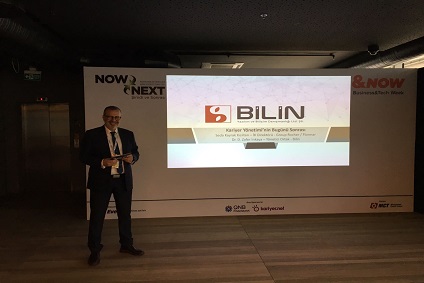
Blogs List

HR Management and Technology Today

I recently attended two summits on HR management. One was the HR Summit organized by Management Center Turkey. The other was called HRBP Summit – 2018 and organized by the University of Bosphorus. We had the opportunity to benefit from the experiences of many respected HR managers from well-known enterprises in Turkey.
When I returned home, I decided to make a summary list of what I heard in these two summits, and here it is:
ð The vast changes in technology and dynamics of doing business in Turkey and the world has a great impact on HR.
ð The changes in technology affects the way the work is done, which in turn changes the expectations and work behavior of the employees.
ð It is now imperative for HR management to be a “Business Partner” in every organization.
ð Mobile technology, developments in communication, robots, robot software, virtual reality, and HR software using these technological improvements has become natural part of HR management.
Looking at this list and thinking about the changes in HR since the days in 1990 when I first started working with HR management area, I realized that, basically, the change is not that drastic at all. To give you some examples:
ð Although the first computer was used in the American census in 1890, IBM, one of the most important pioneers of computer manufacturers was established in 1924, and the real deep impact of computer technology into management started with the invention of microprocessors in 1972.
ð I read a book called “Managing with Computers” (Terry G. Rowan, 1982) during my MBA thesis study in 1984, and I found it very interesting as that was the first book I found that mentioned the impact of computers on management and organizations (The graphic on its cover was very interesting to me, and I wanted to share it with you below).
 |
ð Based on the date of this book and the invention of microprocessors, I am guessing that the global impact of computer technology on changing management and organization concepts would be around 1978, which means it has already been over 40 years.
ð The Hawthorne studies were conducted on workers at the Hawthorne plant of the Western Electric Company by Elton Mayo and Fritz Roethlisberger in the 1920s. “Organizational Behavior” approach was recognized as an academic specialty area by the American Psychological Association in the 1970’s. Thusly, people have been working formally on these specialty areas for at least 50 years.
To me, this illustrates that since the beginning of the universe change is just a natural part of life. The speed of change is just a relative concept depending on who you are asking. It seems we might have a much more efficient, effective and joyful experience which would add value to our lives if at these summits and conferences we just stopped talking about how fast things are changing and how important it is for us to adapt to these changes, but instead, start discussing what those specific changes are and the impacts and possible reactions once we adapt to those changes.
So, to form an example, I listed below some specific discussions that would lead us all to think in this direction:
ð Extracting from what line managers expect from HR, they say:
- HR should know the business of the organization.
- HR should be able to speak with numbers, they should be specific, reliable and accessible.
- HR should be able to present value adding, effective solutions to problems in her area of responsibility.
The alternative approaches to how HR should meet such expectations of other managers in the organization is a good starting point for such discussions.
ð Similarly, the collaboration examples of other managers with HR units can be iterated to make HR departments meet these expectations in a consistent and sustainable manner. For example, what could be expected from Finance, IT or Production Management units in this respect?
ð The balance between the strategic role of HR and operational responsibilities is very important. It is obvious that, although corporate strategy is more important, an HR department that cannot carry out her operational responsibilities will not be respected at the strategy table. Therefore, the details of HR’s operational role and the ways to help HR reduce the operational load should be discussed so that HR can allocate more time to strategic areas and be respected at the strategy table.
ð Everyone is clear about the importance of employee satisfaction and loyalty these days. Instead of repeating how important it is in every seminar, we should discuss creative ways to increase employee satisfaction and loyalty. It is even possible to find industry specific solutions for this problem.
ð Last but not the least, “data and analytics” is a timeless issue whether technology is used or not. If you want to decide rationally, you have to rely on data. There is nothing to discuss about it. However, there is always a need for discussing how the changing technology is enabling us to store and process more data (in size and variety) and helping us find our hidden interactions among them both on a time line and contextually. We need to discuss the new ways of making technology help us decide faster and better and come up with new ideas.
I will try to “practice what I preach” in my upcoming blogs. I believe that it will be more useful for all of us to discuss specifics of HR’s rapidly changing technology and how it can to help us do our jobs better.



